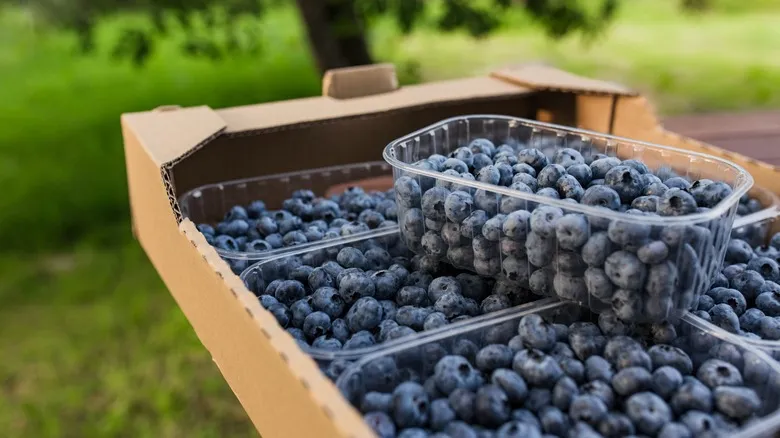Sweet blueberries sink, sour berries float
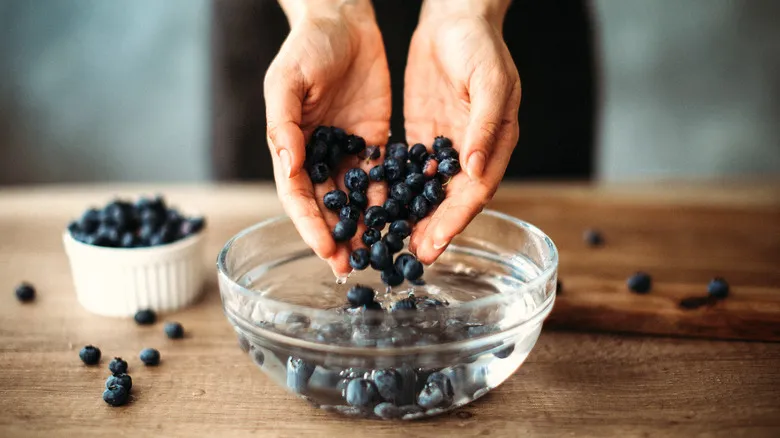
It may seem unbelievable that a simple bowl of water is the easiest way to determine if your blueberries are ripe, but the explanation is quite straightforward. It all hinges on the sugar content in each berry. As noted by Allrecipes, "Due to the sugars, a ripe blueberry has a higher specific gravity than water, causing it to sink." Conversely, an underripe (and tart) blueberry contains less sugar and has a lower specific gravity than water, which makes it float.
This concept is also backed by technology in the blueberry industry. Since the 1980s, hydrodynamic sorting machines have been used to assess the ripeness of harvested blueberries based on their buoyancy. This method was once standard practice. However, today, most blueberries found in grocery stores undergo quality assessments on conveyor belts without the use of water. This dry sorting technique helps minimize losses and can extend the freshness of blueberries.
To help the berries last longer in the refrigerator, suppliers may include some underripe blueberries. While this might seem like a small trade-off, it can be beneficial—especially since you don’t need a specialized machine to distinguish between sweet and sour blueberries at home. Additionally, there are still many ways to use less-ripe blueberries.
What to do with underripe blueberries
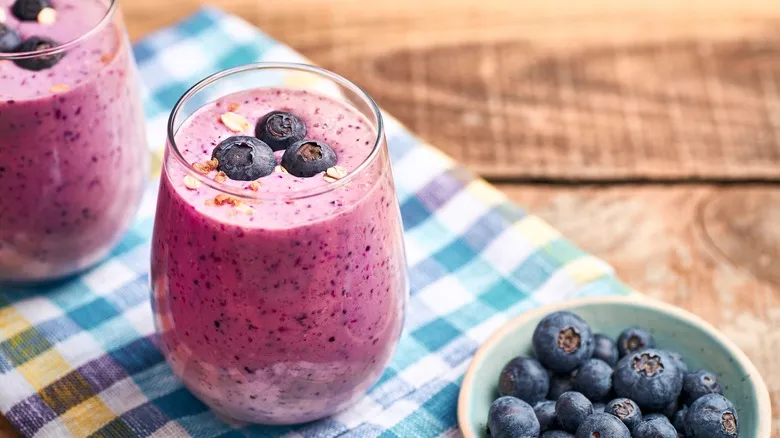
Once you've figured out which blueberries are ripe and which aren't, you might be curious about how to use them. For the perfectly ripe and sweet berries, enjoy them as a healthy snack or dive right into baking. (If you decide to store them in the fridge, make sure to dry them thoroughly to prevent them from becoming mushy.) However, if you have some less-than-ripe berries that you're not eager to eat, we have a few ideas for you.
It might be worth trying to see if sour blueberries can ripen with a little more time. Unlike fruits that produce ethylene, such as apples and bananas, berries typically do not continue to ripen after being picked—especially if they were harvested before reaching their full color or size. Nevertheless, research published in Plant Science suggests that it’s not entirely out of the question. To promote ripening, blueberry farmers recommend leaving underripe berries at room temperature or storing them alongside an apple.
If you find that your overly tart berries don’t ripen, there are still plenty of ways to enjoy them. Blueberries can be frozen for up to 10 months without losing their nutritional value, so you can mask their sour taste by adding them to a smoothie packed with other fruits. Alternatively, you can sweeten your bland blueberries by macerating them. The resulting mixture can be used in a variety of blueberry recipes. Regardless of how you choose to use underripe blueberries, there are numerous creative possibilities. Whether sweet or sour, there's no reason to let any berries go to waste.
Recommended
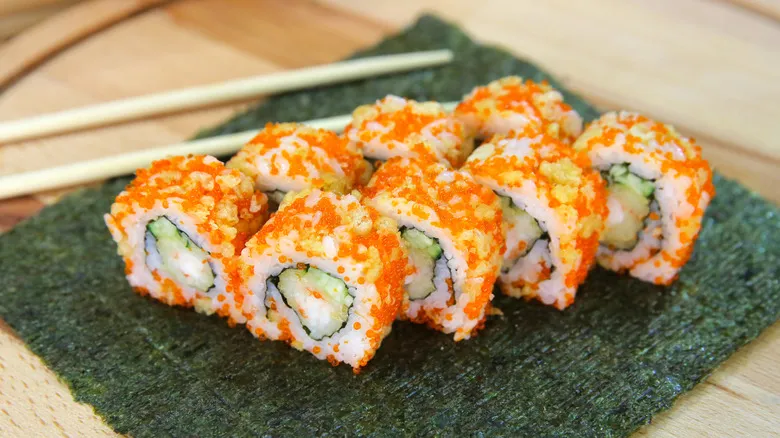
What To Do If You Find Roe While Cleaning Shrimp
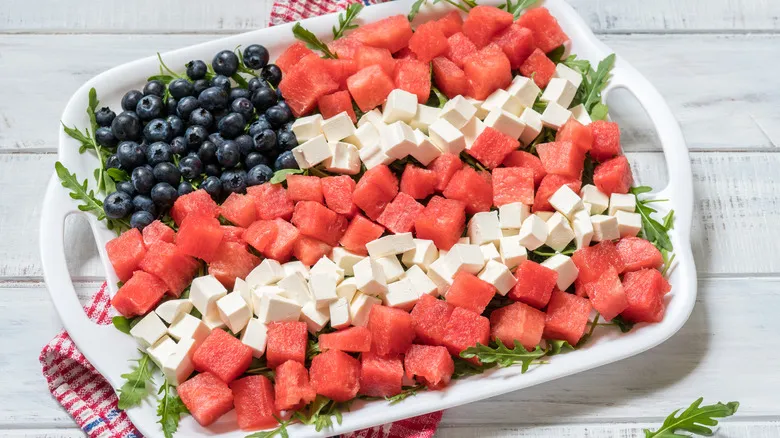
The 3-Ingredient Upgrade Your 4th Of July Fruit Salad Needs
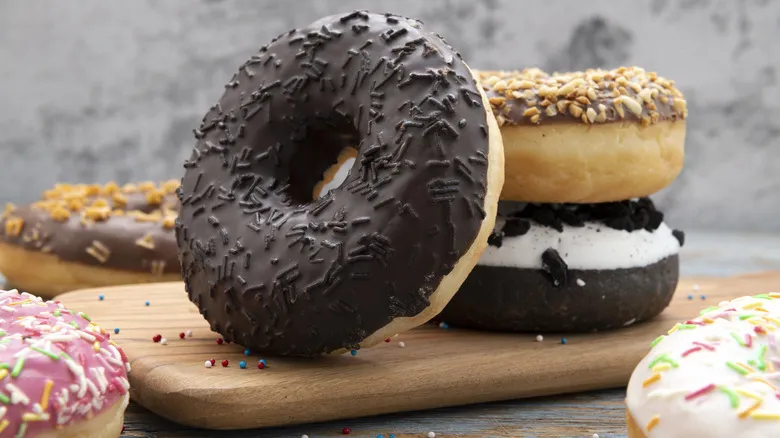
The Trick To Storing Donuts Overnight So They're Not Stale In The Morning
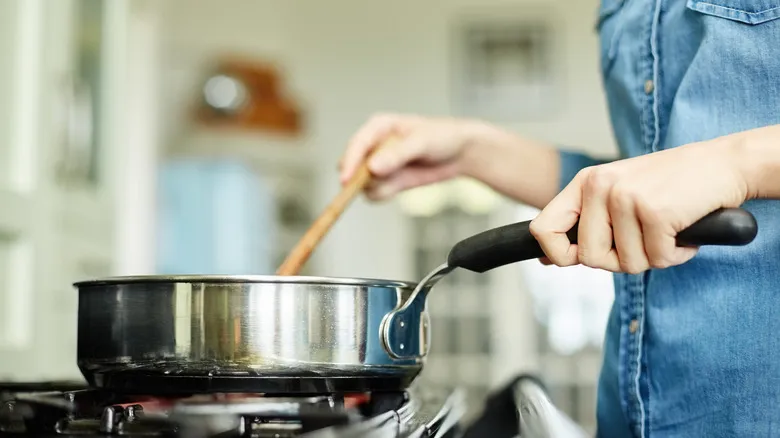
What It Means To 'Deglaze' Your Pan's 'Fond'
Next up

